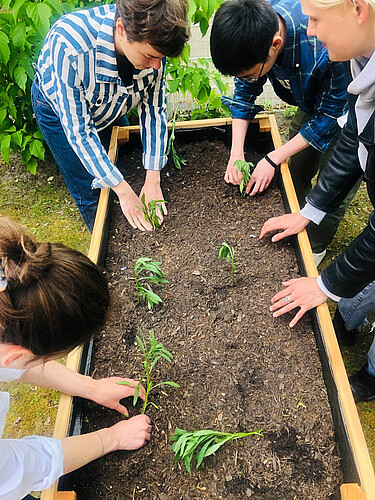Işıl Eğrikavuk
The Other Garden: A Living Research Space – On Inclusive Ecology and Care Work in Academia
In their article titled The future of ecology is collaborative, inclusive and deconstructs biases, researchers Ramirez, K.S., Berhe, A.A., Burt, J. et al. argue that “the field of ecology continues to struggle with great imbalances. Women and people of colour remain chronically underrepresented in ecology faculty positions, and within academia they are less likely to receive awards and funding, be cited, give plenaries, or serve on editorial boards” (Ramirez, Berhe, Burt, et al., 2018). I argue that this is the case also in many art universities in Europe.
Even though I have been employed by one of the major art universities in Germany, UdK, and I research and teach in English, I have found it very difficult to be included in the infrastructure of the institution due to the university’s official language and lack of inclusivity programs. This includes all post and email communications, orientation, institute meetings, lectures, public discussions and bureaucracy, which can lead to quite euro-centric and monocultural perspectives. Bringing together my pedagogical philosophy based on equity and equality and my strive for a more open and inclusive university, I want to propose a project that brings together this personal experience, which is shared by for many people like me together with a theoretical framework. As Sarah Ahmed says, I believe “personal is theoretical” (Ahmed, 2017).
In 2021, together with a group of students from the UdK, I initiated a new project to transform the backyard of our university building in Mierendorffplatz, where there is no social gathering area, including a cafeteria. In one year, we managed to go through the bureaucratic permissions and set up a garden space, where we are growing wild plant species (weeds). Our focus is to create a bio-diverse environment within our department by growing wild plants that are non-native to Germany, as well as exploring topics of inclusivity and diversity within our theoretical framework.
Called “The Other Garden”, our project is a process-based artistic research and lecture space for visibility, inclusivity and care work in academia, especially for those who are underrepresented. As well as having our bi-weekly meetings, in which we do readings and share artistic experiments, we also invite other researchers and artists who work on the topics of ecology and artistic research for our talk series. In Spring 2022, we hosted two events and participated in the climate day.
The Other Garden is both a physical and a metaphorical space for re-thinking our positions and interconnectedness to each-other, to less visible living beings and to the world by critically raising the questions above and practicing them. It is a space that can house theoretical discourses as well as living beings, without hierarchy.
Dr. Işıl Eğrikavuk is a Turkish-born international performance artist and academic based in Berlin, Germany. She received her MFA from The School of the ArtInstitute of Chicago (SAIC) and a Ph.D. in Communication from Istanbul Bilgi University, Istanbul, Turkey, with her thesis titled "From A Political Protest To An Art Exhibition: Building Interconnectedness Through Dialogue-Based Art". She lives in Berlin and works as a faculty member at Berlin University of Arts (UdK), Media and Communication Department since 2017. Eğrikavuk’s work utilizes storytelling, journalism and dialogue-based practices and examines critical themes including protest, feminism, identity politics, nature, and universal interconnectedness. These works take the form of temporary and permanent installations, interactive events and performances, photographic and video documentation, and text-based work.
